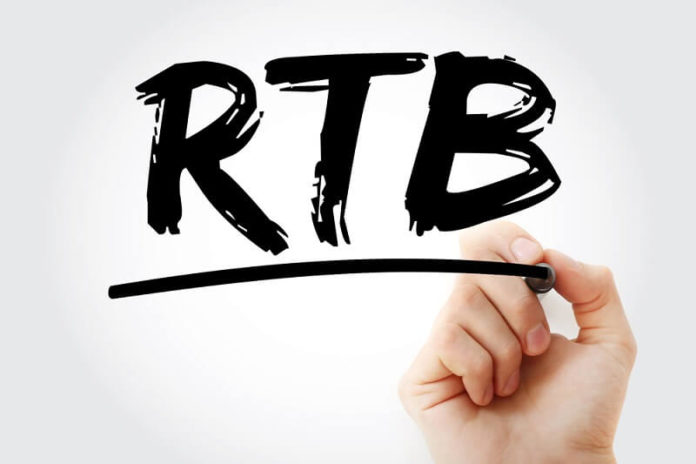In their bid to improve transparency and lower operational costs, some brands and ad agencies have made the move—or are considering it—to bring their programmatic buying in-house. With so much press about how ad dollars are being consumed by middlemen—not to mention the prevalence of invalid traffic—many believe that going direct is both cheaper and provides more control.
However, some may underestimate just how complex the programmatic landscape is, along with the time and resources required to effectively implement and maintain an in-house programmatic function.
To be efficient and successful, you need strategic expertise, access to multiple platforms, and sufficient data in order to drive value for your brand or product. None of this comes easily, leading many agencies to partner with a programmatic specialist instead. So before you decide to bring your programmatic in-house, here are four things to consider.
-
- Your data may not be enough. Programmatic success depends on access to large amounts of relevant audience data. Brands only have access to their own first-party data, and nothing on competing companies in their same vertical, i.e., Burger King would certainly benefit from data regarding what works and what doesn’t for McDonald’s, Wendy’s, and Five Guys, but good luck getting it. Agencies are also limited to the data they have through the clients they currently serve. In most cases, they’ll look to a single contract partner to execute their programmatic strategy, but again, they’re restricted to the data of that one partner.
Working with a platform-agnostic programmatic partner allows both brands and agencies to tap into the resources of a much wider range of clients and data sets. Not to mention, having that relationship also allows you to leverage the partner’s buying power to hit the minimums on all the platforms, where you might otherwise be shut out by doing it alone.
-
- It takes talent. Managing programmatic is a specialized skill that takes training and expertise, which isn’t easy to come by, especially in a tier-two market. That means you may be forced to hire and train remote staff. While the pandemic has made that much more feasible, it still comes with some risk. Let’s say you’re based in Baltimore, MD and go through an extensive, 90-day process of interviewing, hiring, and training a media buyer in Denver. The investment in that one team member, in terms of time, money, and resources, can use up a lot of bandwidth.
Working with a partner eliminates that huge liability. It gives you the flexibility and freedom to tap into a treasure trove of talent, and leverage experienced buyers who not only understand your goals, but how to immediately execute a strategy against those goals. There’s no long-term commitment, and you benefit from a broader perspective.
-
- Buying direct may not be cheaper. Clearly, the higher your operating costs, the more at risk you are when the market ebbs and flows. When you’re locked into a full-time employee and you need to make extensive cuts, there’s an HR liability to consider. Or, if you’re all-in with a single programmatic platform and it becomes obsolete, your entire strategy could collapse. And that’s a real risk, because not many companies in the space have real staying power. They’re bought, rebranded, acquired, and merged frequently. What if you’re working with a partner that is suddenly bought out? Now all of your ad dollars are with a different company, who could be a competitor, along with all your valuable market data. Going in-house may save you money, but at the expense of losing the holistic perspective and ability to easily make change when needed.
Working with a programmatic partner solves these issues and provides a cost-effective way to manage ebbs, flows, and dramatic changes in the market. Need to pare back on spending? Simply adjust your contract. Competitor buys up a platform? Shift your spend across others. The ability to adjust dynamically is incredibly valuable in such a fast-moving industry.
-
- It’s not fraud-proof. Taking your buying in-house will not solve the fraud problem. When you sign up with a DSP, you’re not just signing one contract—there are a host of other ancillary contracts involved with companies that provide supporting services, including fraud prevention. But are they best in breed? And will they be tomorrow? To combat fraud, you must have the right tools in place; those don’t come cheap, not to mention it’s not your core competency, so it could mean expending a lot of resources for very little return.
Instead, working with a programmatic partner provides a much broader spectrum of protection. The best-in-breed layer in MOAT, Double Verify, WhiteOps, etc. as part of their service package, giving you a wider net with which to combat fraud. Doing that on your own is extremely expensive, plus it adds more complexity to your buying stack. Do you have those resources in house?
The bottom line: digital is too important, and the stakes are too high to risk messing it up by cutting corners. If your total budget is just $20 million a year, and an inexperienced buyer at an agency accidentally adds a zero to a $50,000 buy, they’re on the hook for the half-million-dollar mistake. If that happens internally, you are and you’ve just blown through a large chunk of your budget.
Working with a trusted partner (not just a vendor—there’s a big difference in this industry) is critical to not only optimizing your strategy but also your operations. It requires much less effort to manage one partnership instead of multiple, and it gives you wider access to more data, more channels, and more opportunity.
Mike Juhas is the EVP of Client Services at Digital Remedy. Mike Juhas, has over 10 years of experience in ad tech client services, working with brands, agencies, and publishers ranging from top 10 advertisers to small regional organizations, to rep firms, holding companies and independent shops.
RTB stock photo by dizain/Shutterstock







